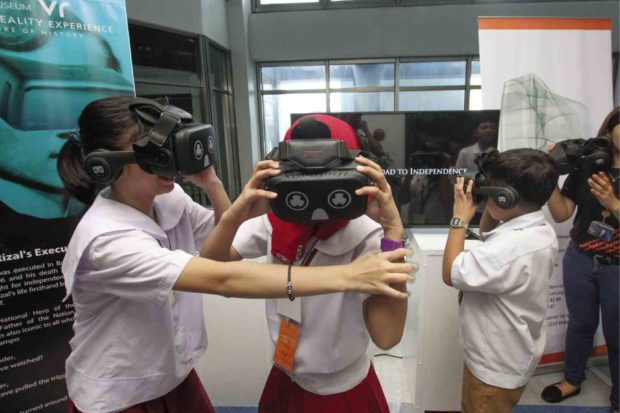
Opting out of the digital world is now necessary for consumers’ mental health, especially kids’, according to Fjord Trends —FILE PHOTO
Digital decluttering; demand for sustainability and transparency; and efficient, coherent urban transport ecosystems.
These are just some of the consumer trends which organizations should take into consideration in order to improve their business models this year, says the recent “Fjord Trends 2019” report by Accenture Interactive. Like last year’s edition, the report identifies seven emergent trends expected to affect business, technology and design by drawing upon the collective thinking of Fjord’s more than 1,000 designers and developers in 28 studios around the world.
Fjord is the design and innovation unit of Accenture Interactive, which helps the world’s leading brands transform their customer experiences across the entire customer journey through connected offerings in design, marketing, content and commerce.
The seven trends identified are:
Silence is gold. Disconnecting, unsubscribing and opting out of the digital world is now necessary for consumers’ mental health, especially kids’, states the report, which cites these data from the UK: 63 percent of British schoolchildren today say they would be happy if social media had never been invented, and half of the country’s Generation Z have quit or are considering quitting at least one social media platform. Silicon Valley technologists have put up the Center for Humane Technology in order to build awareness on the dangers of tech on the human mind and society.
What Fjord recommends: Be “quieter” by rethinking ways on how you can measure your organization’s performance aside from online engagement, as well as simplifying feedback surveys. Also, invest in content design to ensure that the minimal engagement you do have with your consumers counts.
The last straw. According to the report, today’s consumers don’t expect companies to just acknowledge environmental issues—they want businesses to act on these in order to prove their commitment to becoming more sustainable.
What Fjord recommends: Redesign your business model by making “the experience of refilling, borrowing, returning, or disposing as great as the experience of buying.” Collaborate, too, with other businesses on how you can make your organizations more sustainable, and find the wealth in waste.
Data minimalism. The report states that due to certain events last year, such as the Cambridge Analytica scandal, people’s perception of how organizations use their personal data had been dented.
“Their understanding of the data value exchange was out of sync with organizations,” the report reads. “While many people assume their individual data set is desirable in its own right, organizations actually want most of it when it’s parts of aggregated data.”
What Fjord recommends: Be transparent by allowing consumers to know how, where and why their personal data was used in your businesses’ personalization efforts. Also, embrace “data minimalism” by collecting only necessary data.
Ahead of the curb. As people continue to flock to urban centers, mobility becomes, more than ever, an important issue. The report states that globally, the lines between public and private transport, as well as item delivery, are blurring. The problem? Lack of regulation and central planning, which leads to a clutter of fragmented and unorganized services.
What Fjord recommends: Think of seamless ways to bring people and items from point A to point B, regardless of transport mode. Be smart about managing the “mobility ecosystem” by linking it to other infrastructure and services.
The inclusivity paradox. While 2018 saw more recognition of underrepresented voices by organizations, such phenomenon has also, inadvertently, excluded consumers who have yet to find their own voice. One example of “unintended exclusivity,” which the report states, is the fashion industry’s efforts to “crack” the $254-billion Muslim market, which have drawn criticism “for working on the assumption that Muslim women are a single, homogenous group.”
What Fjord recommends: Focus on mind-sets, not demographics, and combine human insight with data when learning about consumers. Be human-centric.
Space odyssey. There is now a need for an integrated approach when it comes to designing work and retail spaces, so that digital and physical can seamlessly merge.
What Fjord recommends: Study consumers’ online behavior and see how it affects offline business. Also, align your business strategy with space design, and create a “connected ecosystem” by linking your services to customers’ mind-sets.
Synthetic realities. As the report states, “there’s a new kind of reality on the block,” one that is possible thanks to recent tech developments—think face-swapping, which was used to create a video of former US President Barack Obama calling successor Donald Trump names, or China’s state-run Xinhua News Agency’s use of “AI anchors,” digital composites of human hosts that read the news using synthesized voices.
What Fjord recommends: Understand what consumers see as authentic, so you know how to communicate that authenticity effectively. Be clear about brand purpose. Explore synthetic realities as a creative tool.
To read the full report, visit trends.fjordnet.com.

